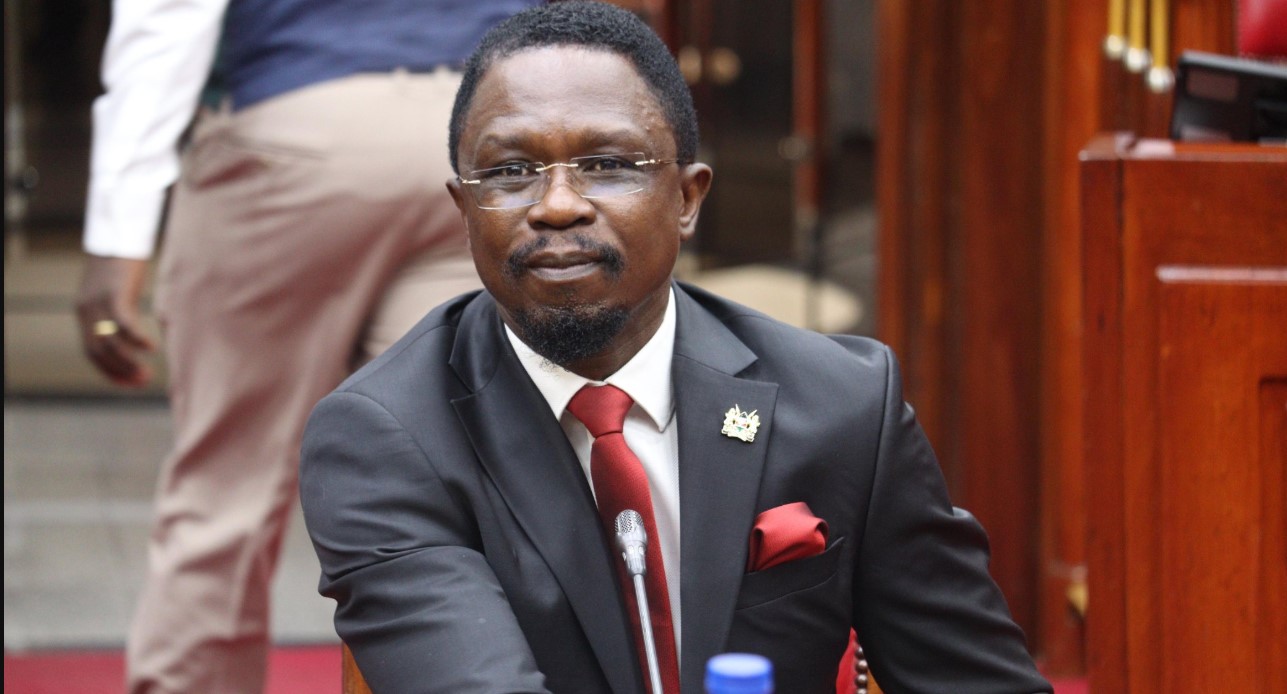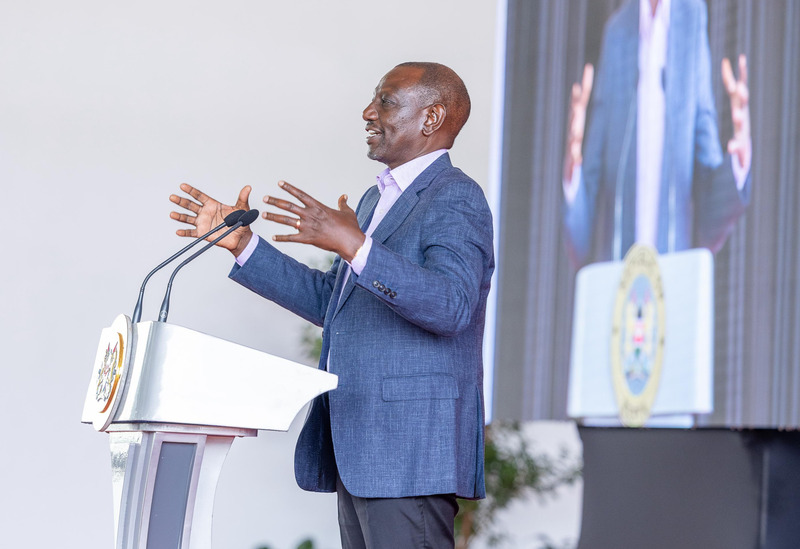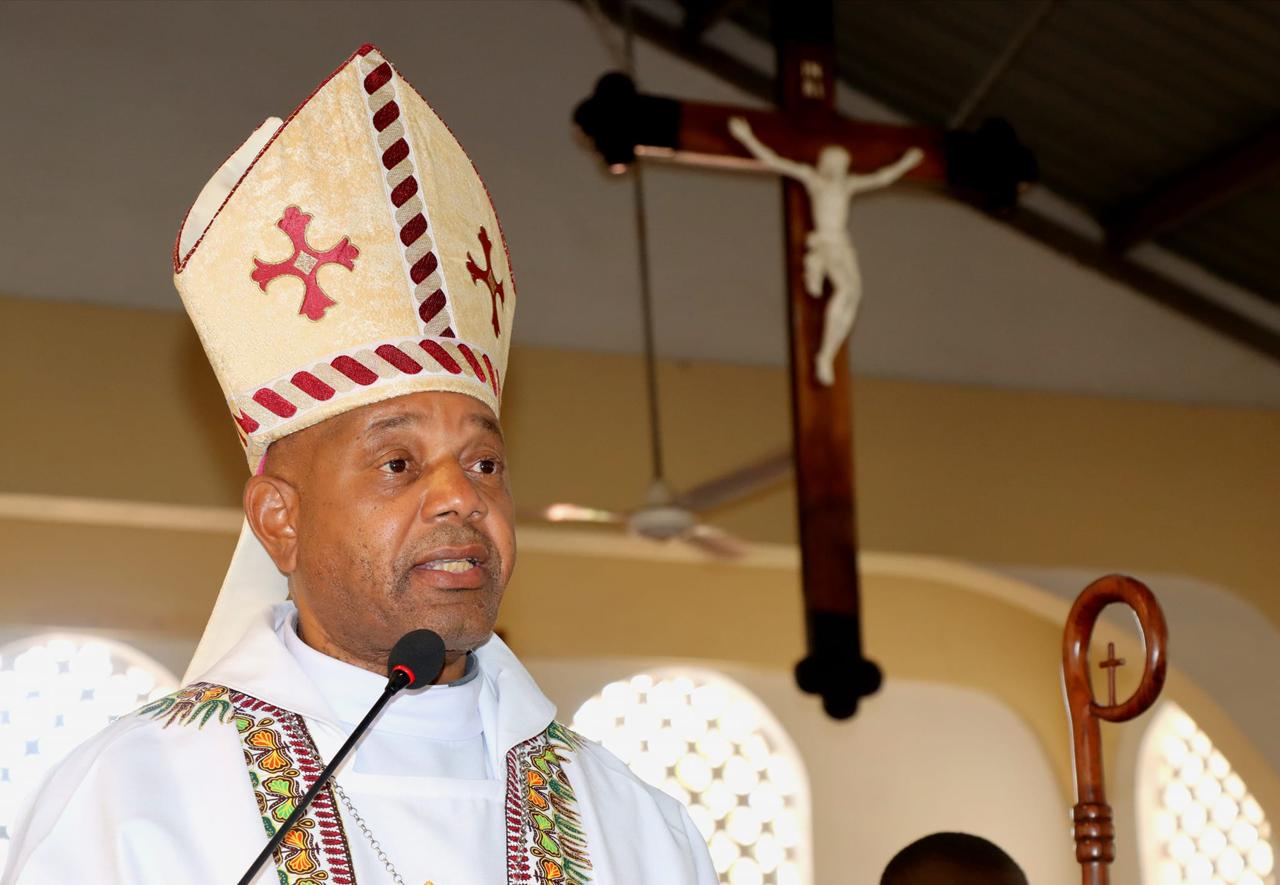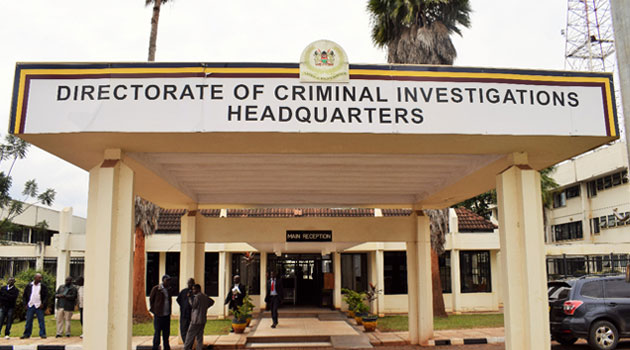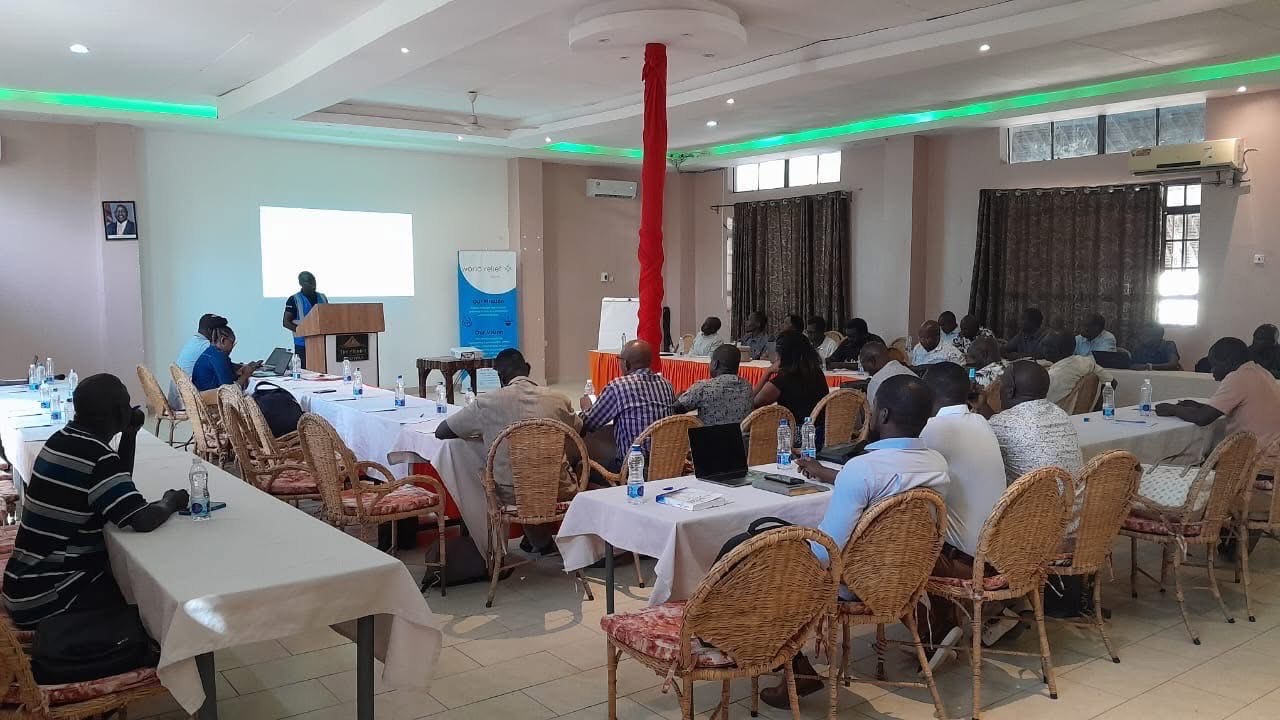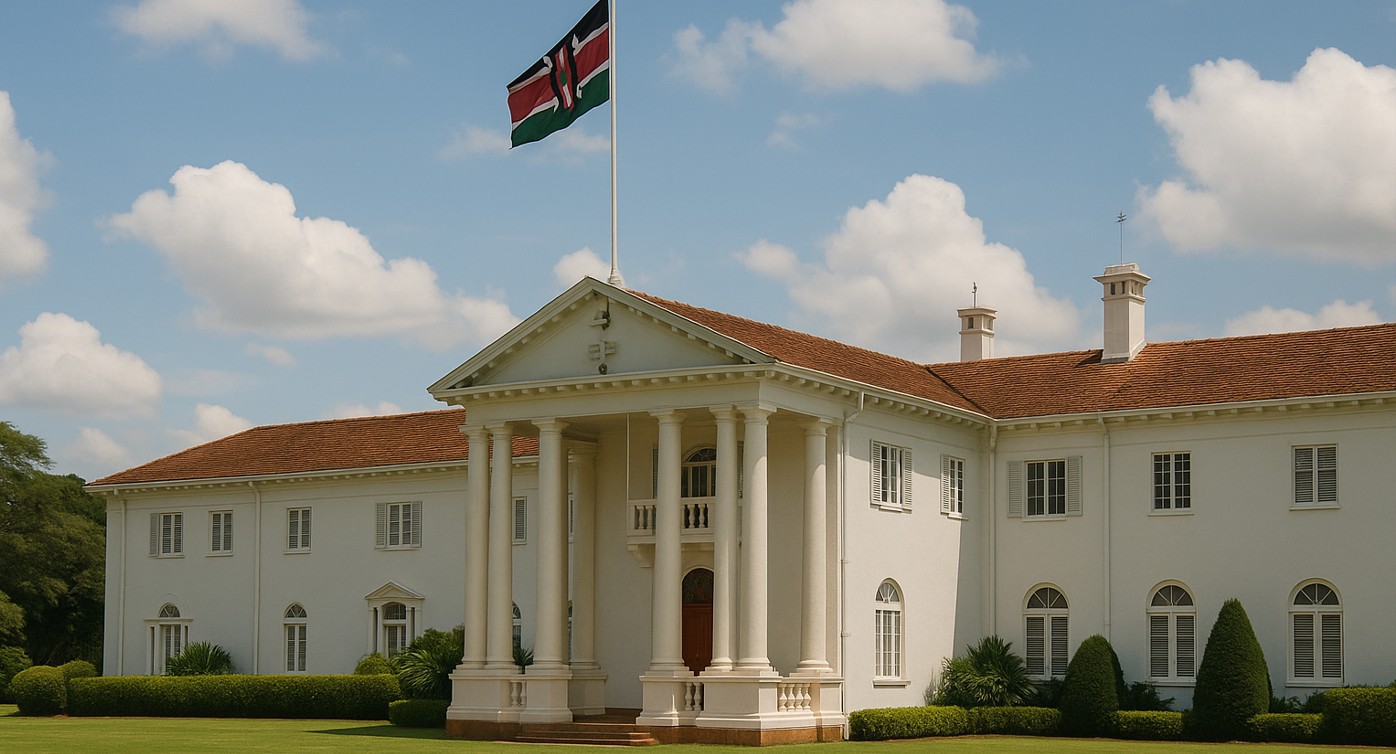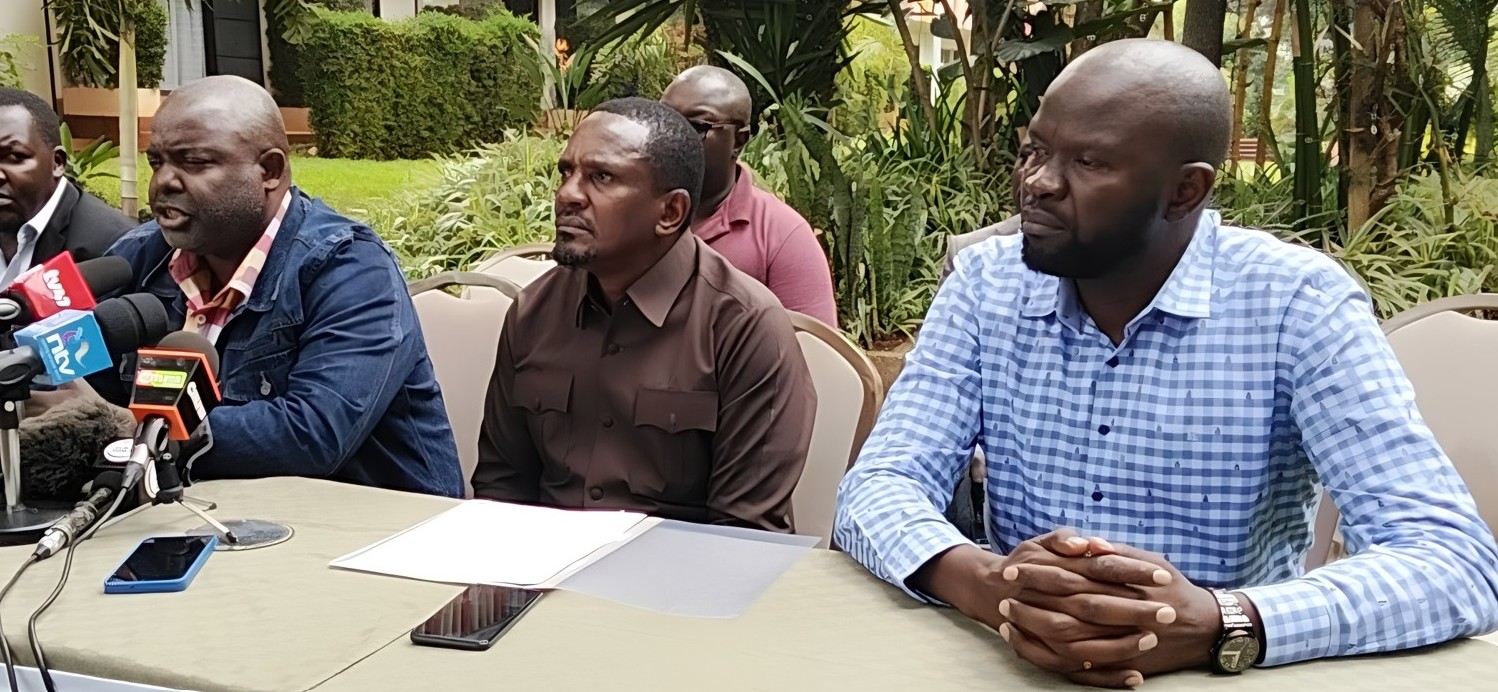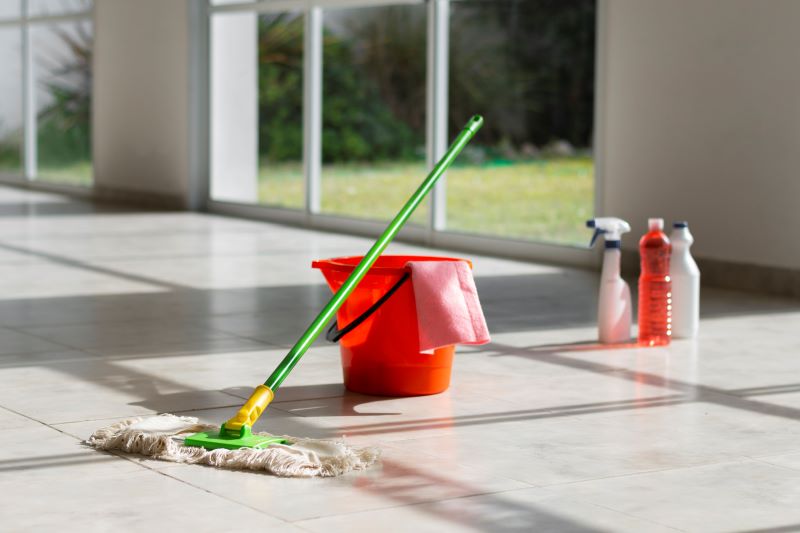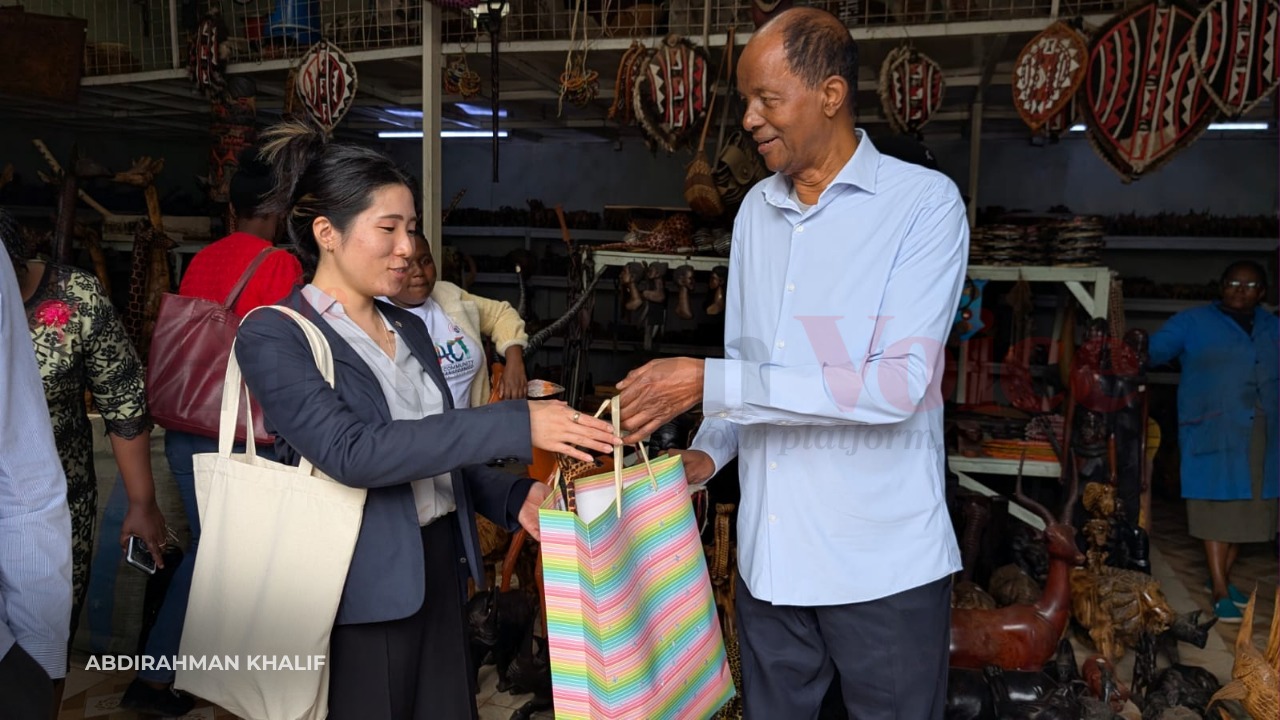Pressure mounts on Northern Kenya leaders to ban muguka/miraa consumption
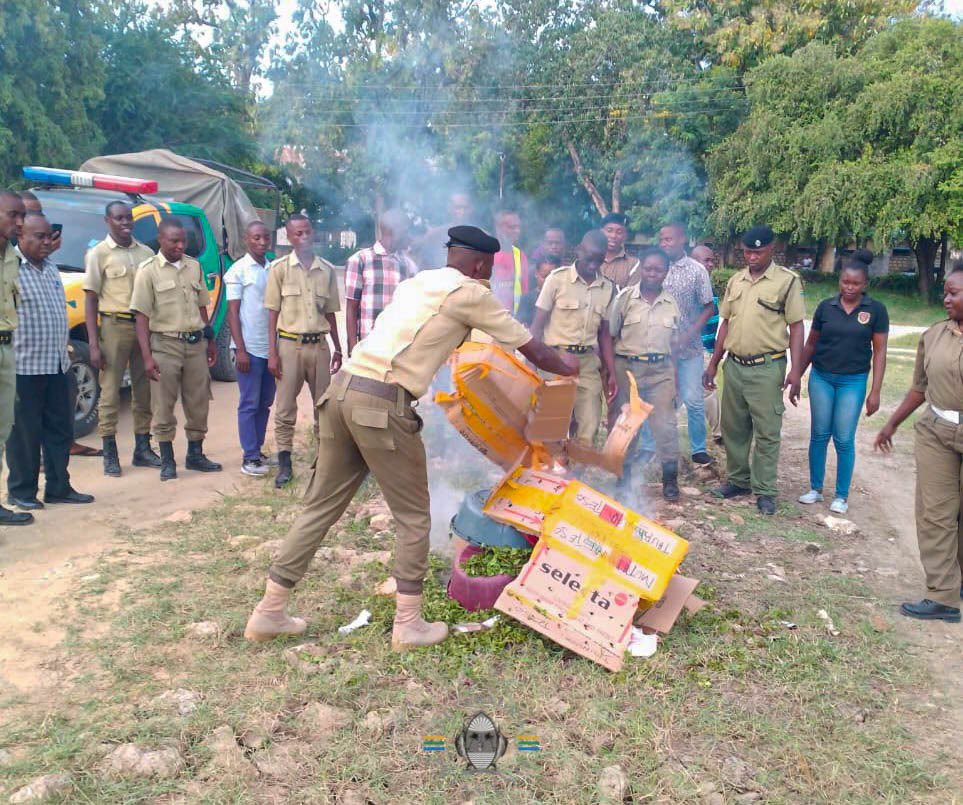
A study led by Kenya's well-known psychiatrist, Prof. Lukoye Atwoli, along with 13 other experts, reveals that people who chew khat often experience psychotic symptoms such as hallucinations, delusions, and disturbed thoughts.
Leaders from Northern Kenya are putting more and more pressure on the region to outlaw the sale and use of Miraa and Muguka.
Senator Ali Roba of Mandera on Friday condemned the devastating impact of these stimulants on Northern Kenya communities, urging fellow leaders to unite in the fight against their proliferation.
More To Read
- Muslim women's group calls for urgent Muguka regulation after withdrawal of Bill
- Kilifi North MP Owen Baya withdraws controversial Muguka Bill after DP Kindiki meeting
- Muguka farmers face uncertain future as new Bill seeks delisting
- MPs demand tough action on reckless miraa drivers
- Miraa farmers struggle to sell produce as traders reject new prices in Kagwe's directive
- New miraa prices expected to improve farmers’ livelihoods, expand crop's farming
"Muguka and Miraa are destroying lives, turning our youth into zombies, and perpetuating poverty in Northern Kenya," he stated.
The Senator lamented the government's apparent indifference to the plight of Muguka and Miraa users, contrasting it with the vigorous efforts to combat illicit alcohol in other regions.
"While the government combats illicit alcohol in Mt. Kenya, it is encouraging Miraa use in Northern Kenya by financing its growth and consumption," Roba emphasised.
He argued that the substance was banned by the World Health Organization in 1980 contains cathine and cathinone, which are classified as drugs in the Western world.
The lawmaker also faulted President William Ruto for meeting those profiting from this harmful drug instead of those harmed by it.
Roba's sentiments were echoed by Wajir South MP, Mohammed Adow, who advocated not just for the ban of Muguka, but for the complete prohibition of Miraa to safeguard public health and economic stability.
The evidence of the harmful effects of Miraa/Muguka on health, society, and the economy, he argued, is too compelling to ignore.
"It is time to take a decisive action and mitigate its damaging impact however unpopular such a decision may be politically or otherwise...," Adow noted.
A study led by Kenya's well-known psychiatrist, Prof. Lukoye Atwoli, along with 13 other experts, reveals that people who chew khat often experience psychotic symptoms such as hallucinations, delusions, and disturbed thoughts.
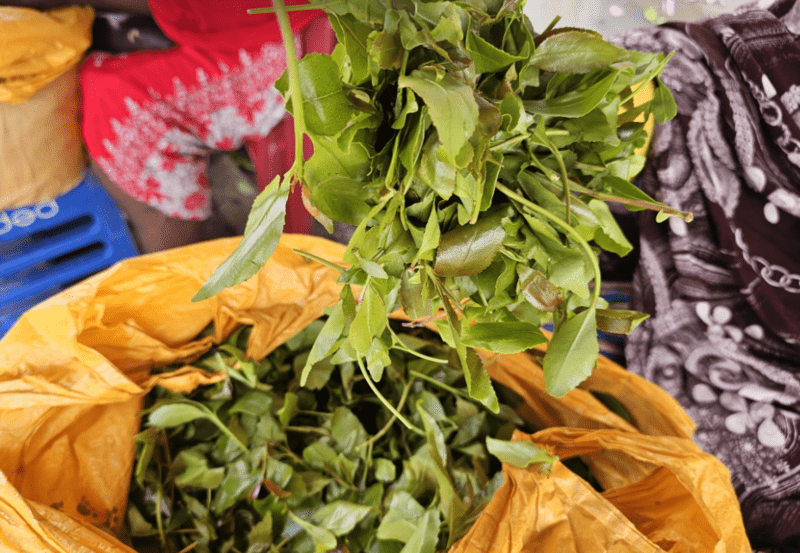 Muguka on sale in Eastleigh, Nairobi, in this file picture. (Photo: Abdirahman Khalif)
Muguka on sale in Eastleigh, Nairobi, in this file picture. (Photo: Abdirahman Khalif)
The research aimed to explore the connection between these symptoms and khat use in a rural area of Kenya where khat is commonly grown and chewed.
The team conducted a comprehensive household survey, selecting 831 participants aged 10 and above from the Eastern region of Kenya.
"We used the psychosis screening questionnaire (PSQ) to gather data on psychotic symptoms, and a specially designed questionnaire to collect information on risk factors," the study noted.
This approach allowed the researchers to identify the significant impact of khat chewing on mental health in the studied population.
Going further, Dadaab MP, Farah Maalim, described Miraa/Muguka as harmful illegal drugs banned in the majority of nations globally.
Maalim insisted on the need for medical experts, rather than politically motivated individuals, to spearhead the conversation on addressing the menace posed by these substances.
"Miraa/muguka are harmful illegal drugs banned in over 97 per cent of all nations in the globe. Like cocaine and all other illegal drugs trafficking in these substances is immensely lucrative but we shall fight this battle for the sake of Kenyan youths like never before," he added.
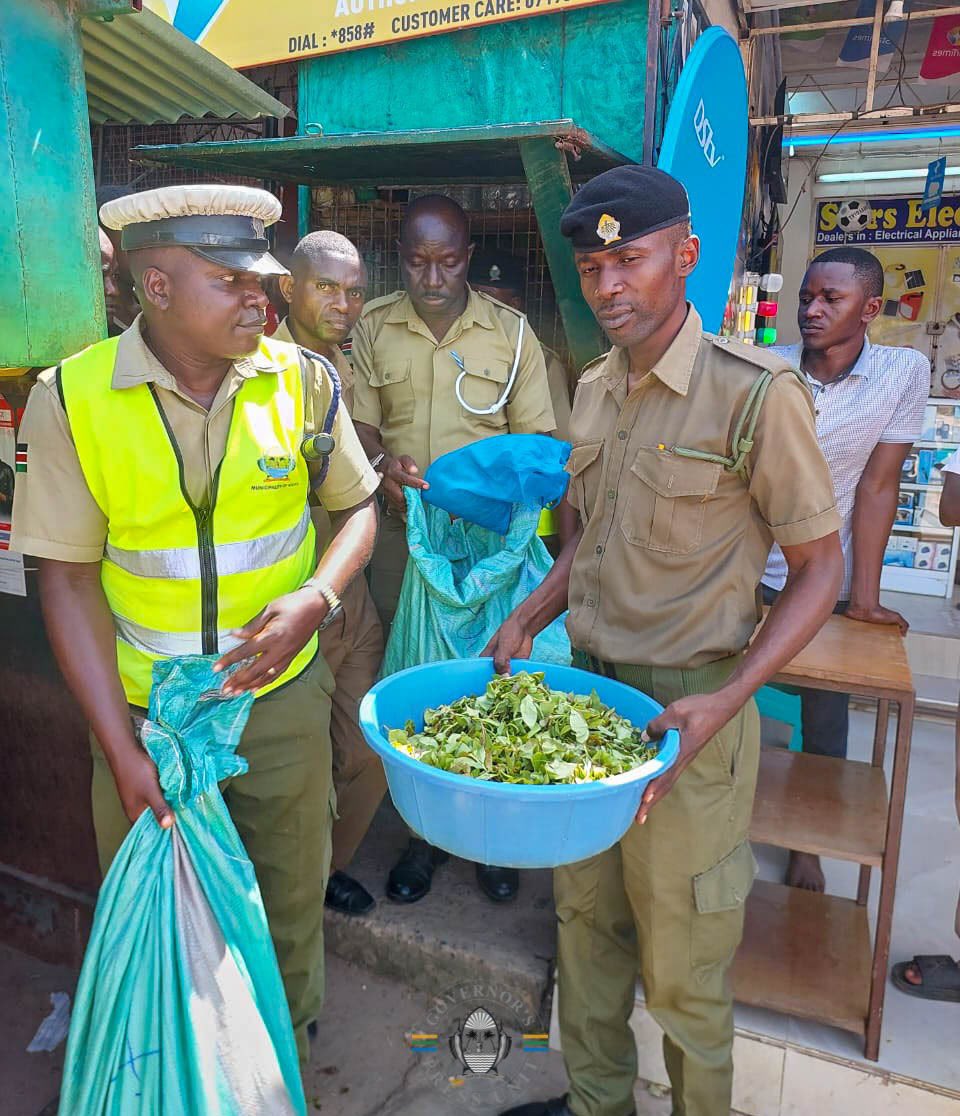 Kilifi inspectorate officers confiscate boxes of muguka following the directive from Governor Gideon Mung’aro. (Photo: Kilifi County)
Kilifi inspectorate officers confiscate boxes of muguka following the directive from Governor Gideon Mung’aro. (Photo: Kilifi County)
In addition, a petition submitted to the Wajir County Assembly by a concerned voter from Hadade, Wajir West Sub-county called for the ban of Muguka.
The petitioner cited its significant negative impacts on the community, including health issues, economic strain, social problems, and implications for law and order.
"Regular consumption of muguka has been linked to a range of health problems, including mental health disorders and gastrointestinal issues," reads the petition, which stresses the detrimental effects on individuals and families.
The petitioner claims that the purchase of muguka imposes a financial hardship on households.
"Many households spend a significant portion of their income on these substances, diverting funds away from essential needs such as food, education, and healthcare. This perpetuates a cycle of poverty and economic hardship within our community," reads the petition.
Furthermore, the petitioner highlighted the association between muguka consumption and criminal activities, stressing the importance of banning these substances to enhance safety and security within the county.
Muslim leaders from the North Eastern counties on Tuesday, called on the region's governors to throw their weight behind Kilifi and Mombasa counties in support of the mũgũka ban.
Speaking on Tuesday, the Supreme Council of Kenya Muslims (SUPKEM) chairman in Garissa county, Abdullahi Salat said that the drug has crippled development in the region, perennially eroding the moral fabric of their society.
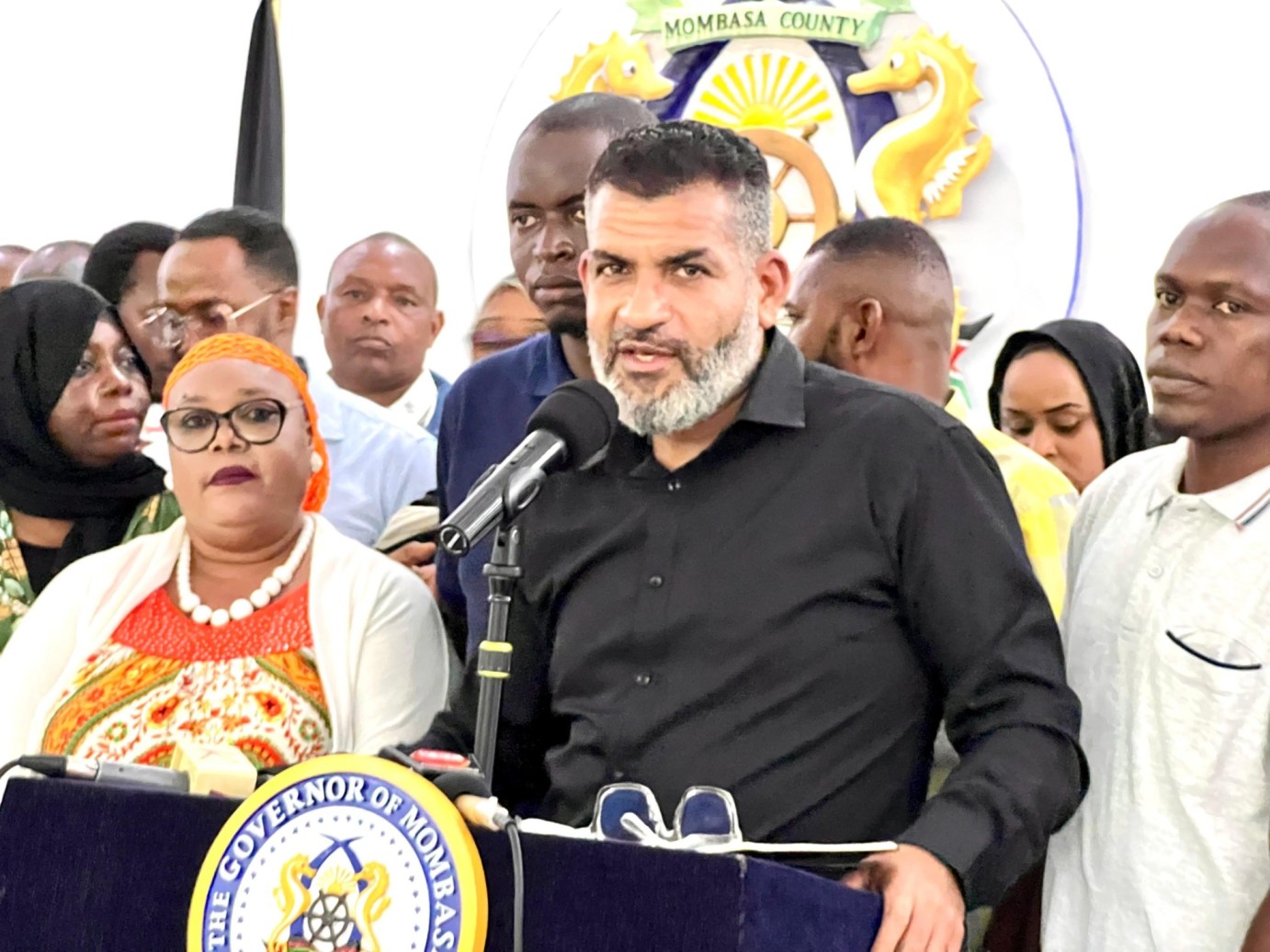 Mombasa Governor Abdulswamad Sheriff Nassir addresses a press briefing on trade in muguka and miraa in his county, on May 14, 2024. (Photo: Farhiya Hussein/EV)
Mombasa Governor Abdulswamad Sheriff Nassir addresses a press briefing on trade in muguka and miraa in his county, on May 14, 2024. (Photo: Farhiya Hussein/EV)
He commended the courageous step taken by the governors of Mombasa and Kilifi and urged Northern Kenya governors to follow suit.
"We want governors from Garissa, Wajir, Mandera, Isiolo, Tana River, Marsabit, to follow that example and that drug should be banned in these counties because it has affected the health, education and resources of our people," Salat noted.
In May 2023, the National Authority for the Campaign against Drug Abuse (Nacada) classified miraa as a drug. In a survey released, Nacada listed miraa among the top drugs and substances of abuse among 15-65-year-olds, with more than 960,000 users.
Former Nacada CEO Victor Okioma highlighted that miraa is a drug that "is responsible for many substance use disorders".
"There are people who are in rehabilitation centres for use of miraa. However, the most problematic khat is the type known as muguka. Our studies have shown that it Narcotics, Drugs and Psychotropic Substances Act as harmful substances," he stated.
"The position of Nacada is that miraa is harmful and muguka is even more harmful. This is why we are discouraging expansion of markets and are against attempts to process it into juices and wine,” he added.
The World Health Organization’s (WHO) classification of miraa as a drug of abuse in 1980, noting its potential to cause dependence.
It stated that miraa is a drug that creates "dependence" in people, meaning it produces a continuing desire to keep using it.
The United Nations Narcotics Laboratory’s analysis in the 1970s identified cathinone in miraa, a compound similar to the stimulant amphetamine, which increases blood pressure, causes insomnia and anorexia, and heightens excitation, alertness, and arousal.
Countries which have banned miraa include the United Kingdom, Sweden, Norway, Denmark and the Netherlands.
The muguka debate came after Mombasa, Taita Taveta and Kilifi counties last week banned entry, transportation, distribution, sale, and use of the drug within their boundaries.
I reject the stereotype that the most we can amount to as the people of the Coast is to be consumers of drugs; muguka or otherwise. We are in this, not for ourselves but our children and their children after that. I am confident that future generations will look back at this as… pic.twitter.com/s8Ex0FaIWz
— Abdulswamad Sheriff Nassir (@A_S_Nassir) May 31, 2024
Embu County government subsequently said it would move to court to challenge the ban in the three counties.
President William Ruto met with Embu elders at State House on Monday and later announced that the muguka ban in Kilifi and Mombasa counties was null and void.
The Head of State pointed out that muguka is a scheduled crop per the Crops Act 2013 and the Miraa Regulations 2023.
The Miraa Regulations 2023 were passed by the National Assembly and the Council of Governors in concurrence of the council of governors.
Ruto noted that the two pieces of legislation were passed by the National Assembly and the Senate with the consent of the Council of Governors.
However, on Tuesday The High Court in Embu temporarily suspended the executive orders banning the sale, distribution, and consumption of muguka in Mombasa, Kilifi and Taita Taveta Counties until a case is heard and determined.
While issuing the verdict, Lady Justice Lucy Njuguna certified the petition, lodged by the Embu County Assembly and Kutherema Muguka Sacco Society, further adding that the conservatory orders will stay valid until July 8, 2024.
The President also stated that Governors from Mombasa, Kilifi and Taita Taveta have agreed to attend a stakeholders meeting addressing concerns raised on the sale and use of muguka after he engaged them.
The meeting will be convened by the Ministry of Agriculture and Livestock and attended by stakeholders to address concerns raised on the sale and use of muguka.
The Head of State will also convene a meeting of political leaders of the affected counties next week.
Top Stories Today

